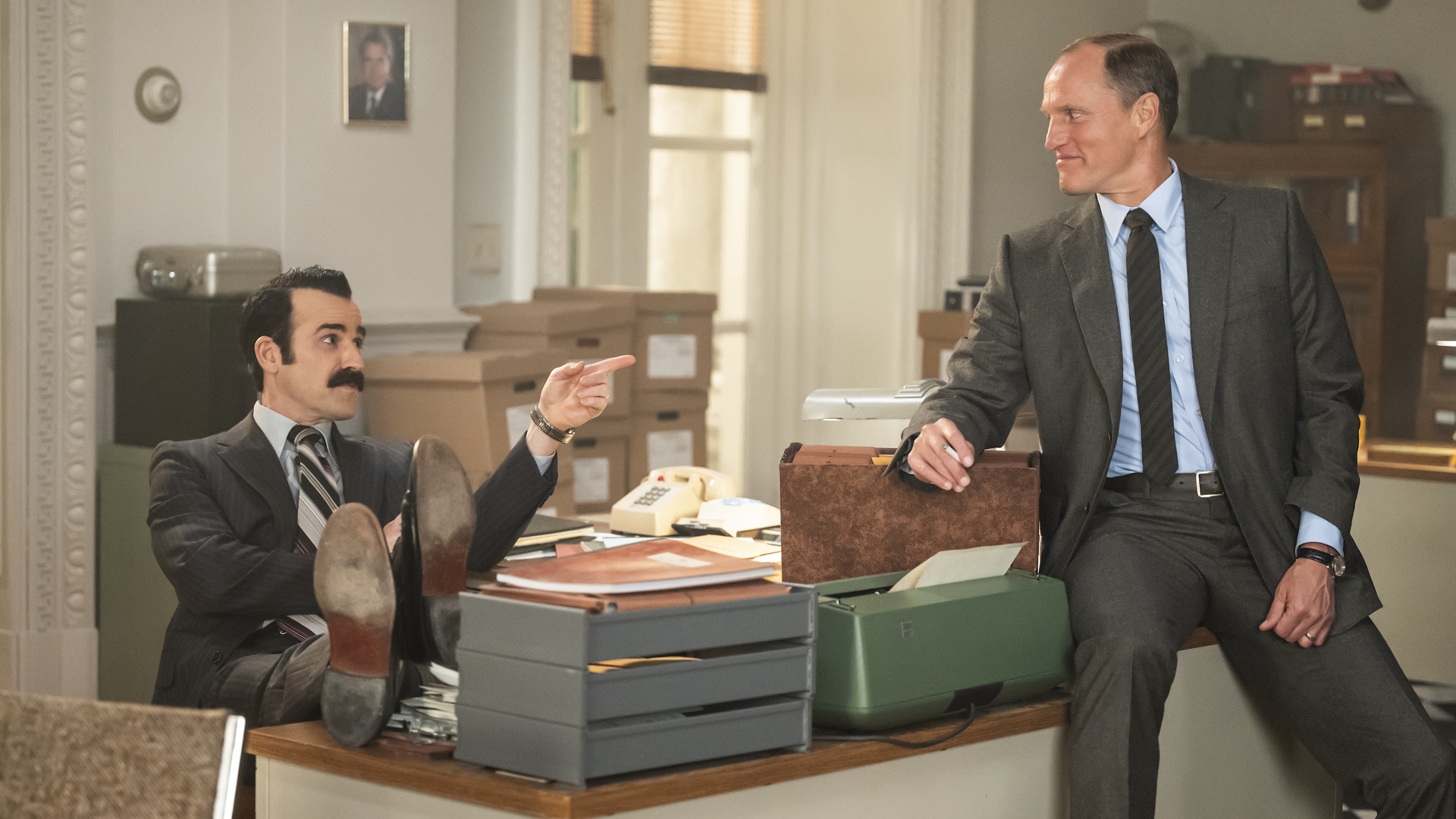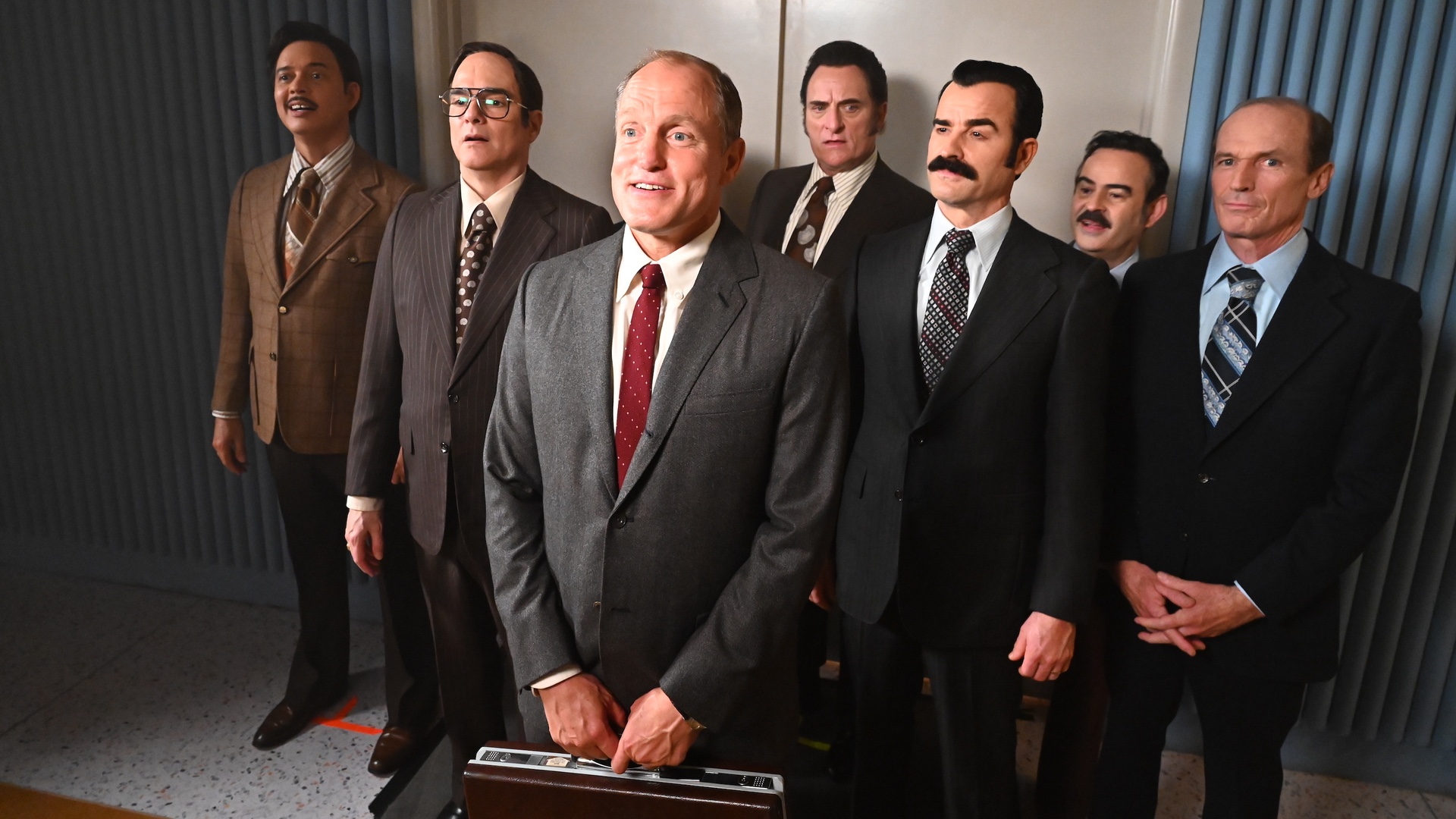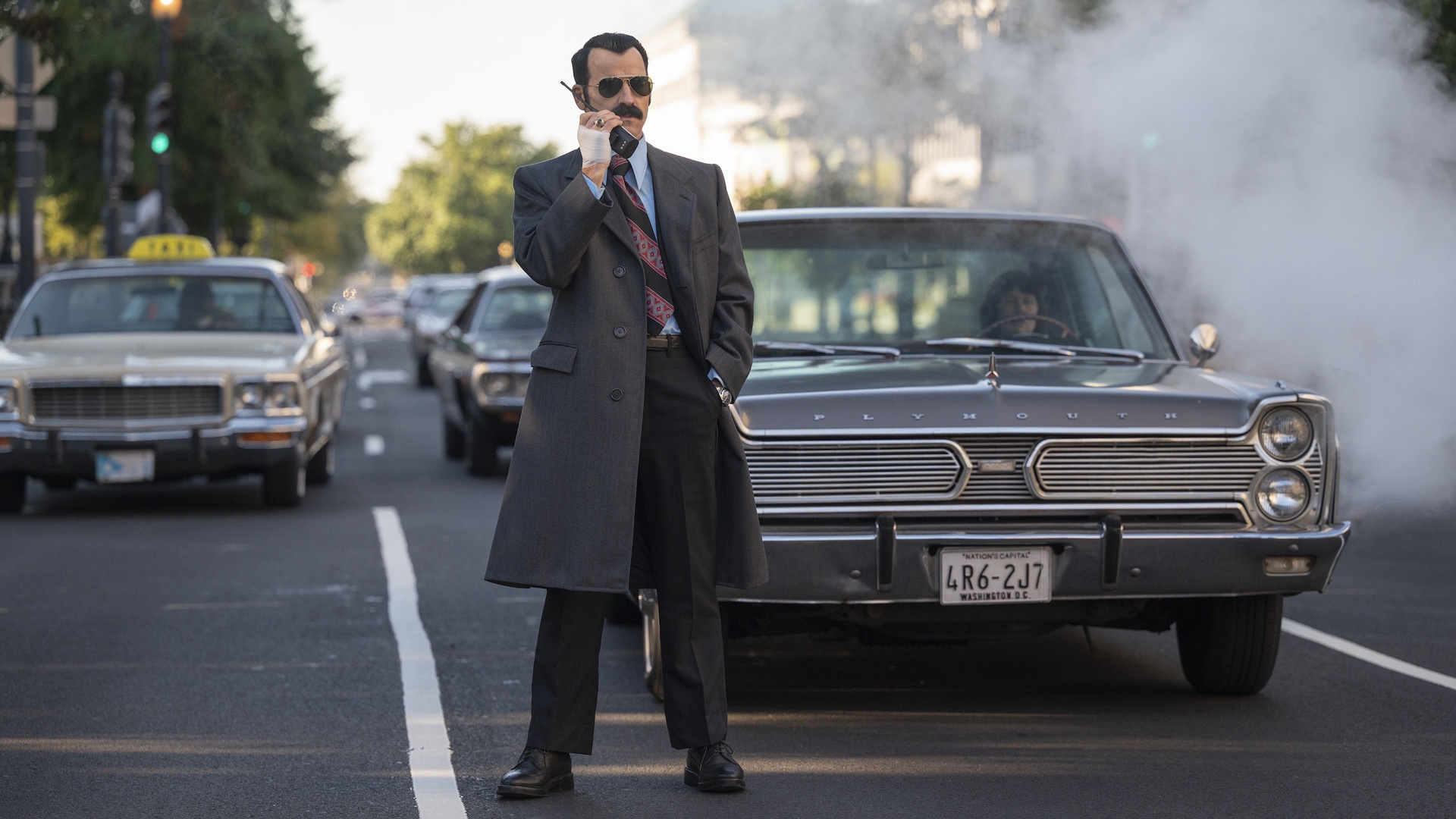Forget Succession — White House Plumbers is the Max series you really need to binge
Missed this Watergate mini-series? Now's the chance to catch-up on Max

A real banger of an HBO original series came to a close this past weekend. Not every series finale can stick the landing, but this one certainly did, wrapping up its compelling storyline in a satisfying way, helped along by some clever writing and first-rate performances by the ensemble cast.
I hear Succession is pretty good, too.
But no, the HBO series I'm talking about is White House Plumbers, a limited series that end its five episode-run a day after we finally found out which of Logan Roy's dreadful hellspawn gets to win daddy's approval from beyond the grave. Like Succession, White House Plumbers dabbled in power struggles of its own, with the stakes as high as its characters were venal.
The difference is that White House Plumbers deals with a real-world story — the planning, commission and fall-out from the Watergate break-in that eventually undid the presidency of Richard Nixon. The show was deft mix of fact (mostly) and some fiction, and if you gave it a pass to focus on the closing seasons of Succession and Barry, you really should go back and give the show a watch now. And that's easy enough to do since all five episode are available on Max, the web service formally known as HBO Max, which strides atop our list of best streaming services like a colossus, even if the rebranded services carries its share of nuisances.
What White House Plumbers is all about
Students of history will know that in June 1972, five men were caught breaking into Democratic National Headquarters with bugging equipment. These men were operatives from President Nixon's re-election campaign and their "third-rate burglary" — Nixon's words, not mine — was just the tip of the iceberg when it came to that administration's dirty tricks and abuses of power.
White House Plumbers centers around the "masterminds" behind the Watergate break-in — though, there is not much mind on display and even less mastery. E. Howard Hunt is an ex-CIA operative on the outs with the spy agency and as desperate to get back in the good graces of the administration as he is to save the country from the excesses of liberalism. G. Gordon Liddy is a washed-out FBI agent with a rather off-putting admiration for element of the Third Reich. Thrown together, they become the Nixon administration's plummers, so named since it's their job to plug any leaks that could prove damaging to the president. Over the course of the series, we learn that oftentimes, their solutions are worse than the problem itself.
Why White House Plumbers succeeds
While White House Plumbers is about a very serious subject, the creative forces behind the show aren't shy about embracing the ridiculousness of some of the situations Hunt and Liddy get themselves into. The series opens with the Watergate break-in — only it's not the one you're thinking of, the one on June 17, 1972. Turns out the fourth time was the charm for our industrious burglars and White House Plumbers delights in every misstep the crew makes. The show also turns G. Gordon Liddy's tendency to stick his hand over a burning candle as a way of demonstrating his iron will into a terrific running gag, I'll try not to spoil here.

The laughs would be empty, though, without some of the deeper themes of White House Plumbers. It's a show about men who yearn to be part of something greater than themselves, but lack the insight and ultimately the moral compass to figure out what that is. It's a show about true believers — how easily they can delude themselves and how quickly they can be cast aside by the powers-that-be once they've served their purpose.
The show also benefits from two solid-to-great performances by the lead actors. Woody Harrelson plays Howard Hunt and while this won't crack the Top Five of his best performances — he juts his chin out a little too much like a cartoon character for my taste — he does a very good job portraying a man who claims to be all about family, while letting his family down repeatedly.
The real standout performance comes from Justin Theroux as G. Gordon Liddy. It's a masterful recreation of Liddy's distinctive cadence, but this is not simply a good imitation. Theroux really gets under Liddy's skin, giving you a fully realized portrait of a real creep, who, nevertheless is usually the most compelling thing about the scenes he's in.

And that's the real genius of White House Plumbers. It makes us care about a bunch of crooks, in that we want to see what happens to them. At no point do we want either one getting away with anything, but we certainly become invested in how their story unfolds. It's a real gift to make you care about characters this pathetic.
White House Plumbers bottom line
White House Plumbers is a perfect example of a self-contained series, with a clear beginning, middle and end. There's no mid-credits sequence where Samuel L. Jackson shows up in Gordon Liddy's house and asks him if he wants to take part in the Iran-Contra scandal. (Though speaking of credits, do stick around for each episode's disclaimer where the producers acknowledge the show takes some liberties with plotting. Those are a real hoot.)
With episode ranging from 45 minutes to 44 minutes, you can knock off White House Plumbers over the course of a weekend. And you'll be very entertained if you do.
More from Tom's Guide
Sign up to get the BEST of Tom's Guide direct to your inbox.
Get instant access to breaking news, the hottest reviews, great deals and helpful tips.
Philip Michaels is a Managing Editor at Tom's Guide. He's been covering personal technology since 1999 and was in the building when Steve Jobs showed off the iPhone for the first time. He's been evaluating smartphones since that first iPhone debuted in 2007, and he's been following phone carriers and smartphone plans since 2015. He has strong opinions about Apple, the Oakland Athletics, old movies and proper butchery techniques. Follow him at @PhilipMichaels.

